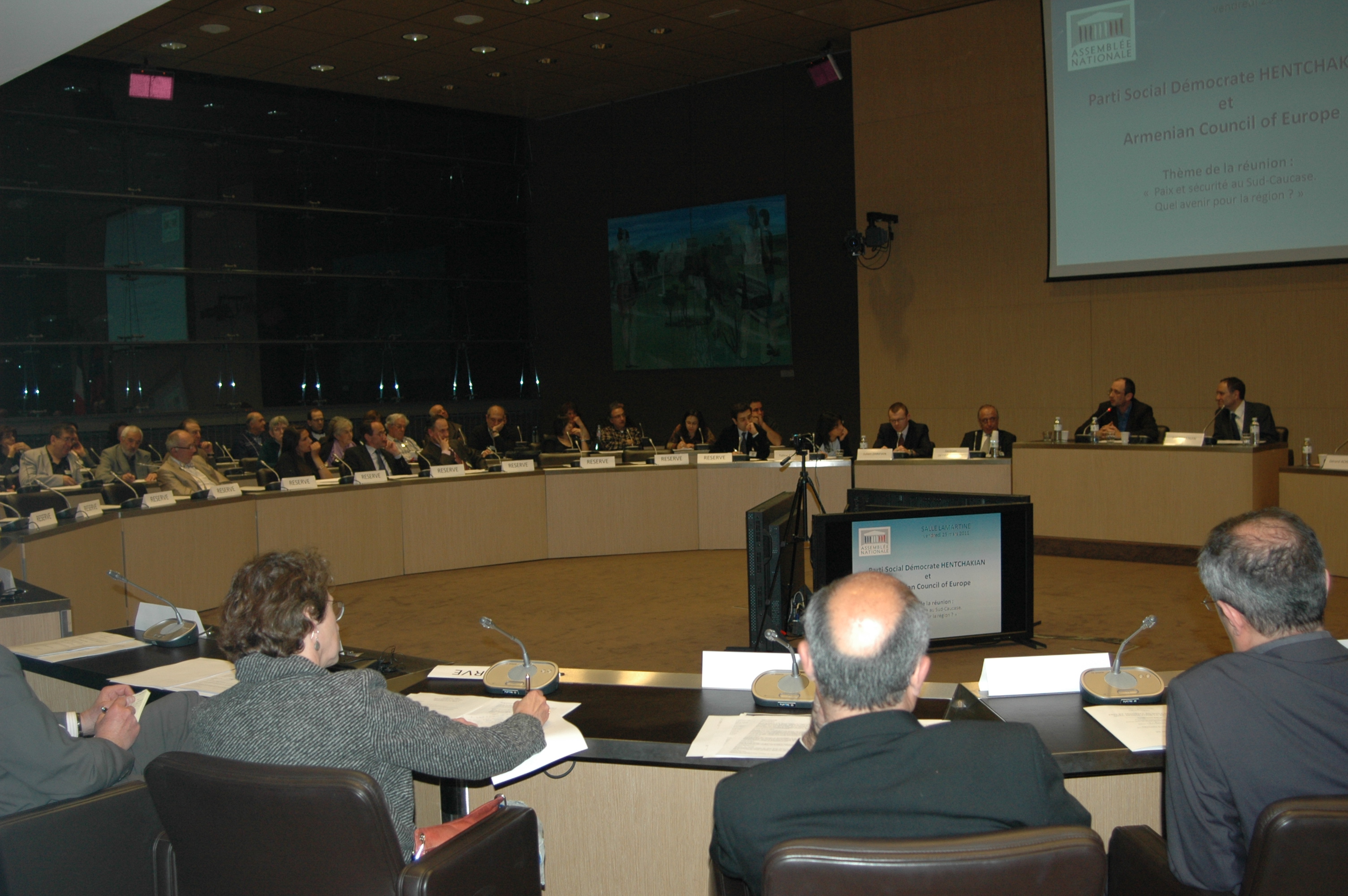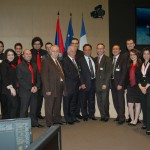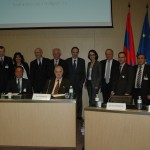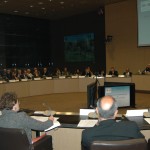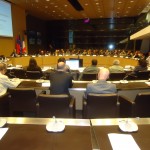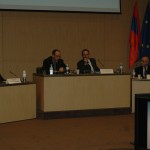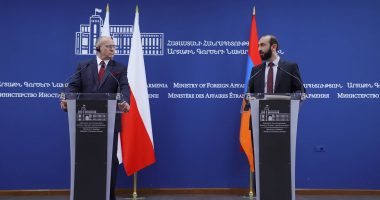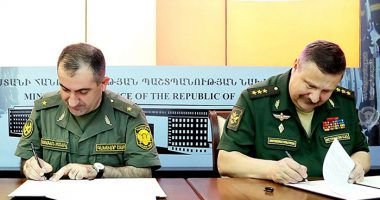PARIS – On Friday, the 25th of March, a conference-debate on “Peace and Security in the Caucasus: What is the Future of the Region?” was organized by France’s Social Democrat Hunchakian Party and the Armenian Council of Europe.
Dedicated to the 20th anniversary of Armenia’s independence, the conference was held at France’s National Assembly (the lower house of Parliament of France). The conference featured well known intellectuals including; economics professor Gérard Ashdjian, president of “Deynergies” and former president of “GDF International” Jacques Deyirmendjian, Doctor of Geopolitical Sciences, professor of international relations in the “ESG Paris” Frederick Ansel, Doctor of Political Sciences Talin Papazyan, the former Armenian Deputy Defense Minister, and current SD Hunchakian Party Central Committee member Vahan Shirkhanyan and a researcher at the French Institute of Geopolitics Julien Zarifyan.
The conference attendees and participants were greeted by Mr. Arman Tosun who gave the welcoming address on behalf of the conference’s organizing committee. Representative and Mayor of Issy-les-Moulineaux, Hauts-de-Seine, André Santini welcomed the conference and congratulated ACE on taking on such an important subject matter. A message of encouragement and congratulations was read on behalf of the Vice-Chairman of the Foreign Affairs Committee in the National Assembly; Deputy François Rochebloine. The Armenian Ambassador to France Vigen Chitechyan emphasized the significance of the subject matter taking place within France’s National Assembly and the importance for the security in the region.
The conference-debate was moderated by Mr. Ara Toranian; Editor in Chief of the Nouvelles d’Arménie Magazine.
Professor of economics Gérard Ashdjian presented the evolution phases of Armenia’s economy since independence. Professor Ashdjian also examined the greater dependence on importation through the existing axes of transportation (Iran, Armenia, Gorgia), and the significance of the continued dependence on various countries (USA, Germany, France, Russia, Turkey, Iran, and Georgia) for differing economic needs.
President of “Deynergies,” Jacques Deyirmendjian, presented on the energy resources and needs of the region and the international energy market. Emphasis was given to the geopolitical nature of the existing oil and gas pipelines, the proposed future pipelines and the emergence of new technologies as well as alternative energies and how they may affect the region politically and economically as a whole.
Professor Fréderic Encel touched upon the ever evolving and convoluted geopolitics of the region; specifically relationships between the Arab world, Turkey, Iran and Israel and its consequences on the region. Furthermore, Professor Encel examined Israel’s foreign policy and the role of the Jewish lobby within the United States and their role in U.S. relations towards Turkey, the region and recognition of the Armenian Genocide.
Julien Zarifian addressed the role the United States plays in the geopolitics of the region. Emphasizing the strengths and weaknesses of the U.S., the various forms of levers at its disposal in the region, and the historical and current relations the U.S. has towards Turkey and Georgia (pre and post Russo-Georgia war of August 2008). Zarifian also reflected on the differing roles and attitudes of the U.S. administrations and its ambassadors towards Armenia and the region.
Armenian former Deputy Defense Minister Vahan Shirkhanian examined the military capabilities of the region, the existing military ties in the region and the prospects of regional instability and military aggression. Mr. Shirkhanian specifically analyzed the current state of war between the Republics of Armenia / Nagorno-Karabakh and Azerbaijan, and the potential outcomes if an active war were to arise again between the parties.
Taline Papazian examined the geopolitical boundaries of the Karabagh conflict: the motivations of the different parties in the region that resulted in the conflict, the military tactics and strategies taken by the different parties during the height of the conflict, and the policies taken within the region and the international superpowers towards the current frozen war of attrition and propaganda that is the present status quo.
Mr. Setrak Adjemian; Chairman of the SDHP Executive Committee, stressed the importance of organizing such educational conferences, thanking the organizing body and wishing the newly launched Armenian Council of Europe continued success in its activities towards a notable intentions. After the conference’s presentations, a question-answer session was conducted to giving the audience an opportunity to ask and discuss the differing viewpoints towards peace and stability of the region.
The conference concluded with Mr. Saro Mardiryan expressing the organizer’s gratitude towards the participants, the honored guess as well as the French Parliament for providing the venue for the event.

